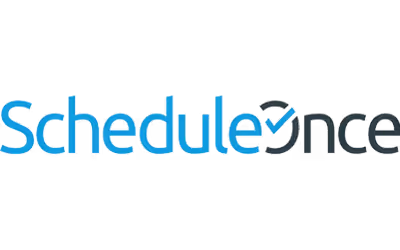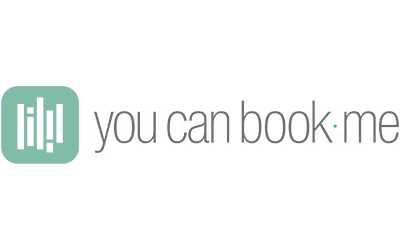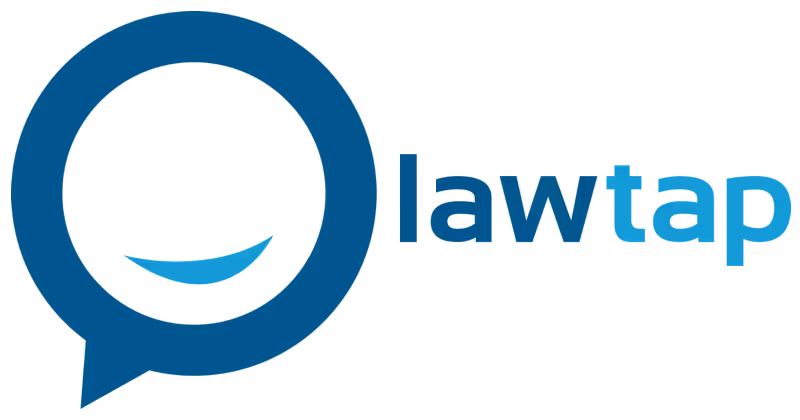Top 10 Scheduling Software for Lawyers: Free & Paid Tools to Manage Your Law Firm's Calendar
Top 10 Scheduling Software for Lawyers: Free & Paid Tools to Manage Your Law Firm's Calendar

Law firms face some pretty serious challenges when it comes to appointment scheduling, client intake, and contract management. You must comply with legal standards and regulations, while also balancing a mixture of appointment types, court dates, and so much more. It’s a lot for anyone to keep up with, but the good news is that scheduling software for lawyers can automate much of the process, freeing you to focus on what you do best.
A quick glance at the law firm scheduling software options, though, shows that you have no shortage of options. Some are free, others are paid. Some focus strictly on appointments and client intake, while others are full-blown law practice management systems (LPMSs). Which is right for your firm’s needs?
The challenge is that law firms come in all shapes and sizes. A solo practice will have drastically different needs than a large law firm, or even a mid-sized one. Add to that specialization differences — criminal law versus family law or corporate law, for instance — and the situation becomes even muddier. Not to mention other variables like payment-integration and intake-integration requirements, so paid consultations and initial intake conversations are handled in accordance with the attorneys’ standards and processes. Meaning, if you charge for consultations, your scheduling tool should include a step for collecting payment — and not all of them do. (One workaround is having our virtual receptionists take a credit card by phone when scheduling consultations for you.)
While there are differences, most calendaring/scheduling tools offer several similarities, too. For instance, most will require that you have a base calendar, such as Office 365, iCal, or Google Calendar. They overlay that calendar and add more value, better access to information, and provide additional functionality. Additionally, most calendaring software provides different meeting locations/types, such as video conferencing, in-person meetings, or phone conferencing.
To help you pick the best calendaring solution for your law firm, we’ve sorted through the top software solutions for your law firm and assembled a list of 10 calendaring tools best suited to attorneys, with a focus on those tools that help solo and small-firm attorneys, especially.
Note also that all of these tools can be used in conjunction with Smith.ai virtual receptionists for seamless screening, intake, and scheduling workflows.
1. Calendly

Available with a completely free option, flexible, and streamlined — Calendly offers plenty of features to help you serve your clients better and convert more leads. It combines advanced automated scheduling with industry-leading integration for an all-in-one solution to your calendaring/scheduling needs. Note that Calendly is not a full CRM.
With Calendly, you can hold meetings of all types, including one-on-ones, round-robin, collective, and group meetings. It’s simple to allow your invitee to schedule their preferred slot, or even to schedule a time with multiple team members if necessary. You’re also empowered to retake control over your time with automated notifications, time buffers before and after events/appointments, and set daily caps on the number of meetings you’re willing to have.
You’ll find that Calendly offers the ability to connect up to six calendars, too. That includes Outlook, Office 365, Google, iCloud, and more. There is also a Chrome extension, and it integrates with other platforms that you already use.
Important features offered within Calendly include the following:
- Free option? Yes
- Price: $8 per user per month
- Connect up to six of your calendars
- Automated reminders via SMS and email
- Set buffers and open time blocks between appointments
- Hold meetings of all types, from one-on-ones to groups
2. Acuity Scheduling

If you want your very own virtual assistant working to streamline your scheduling/calendaring process, Acuity fits the bill. “All you need to do is show up at the right time,” the company promises. And with the features on offer, it lives up to those words.
You’ll find three pricing tiers here — Emerging, which is the base level, Growing, which is the most popular option, and Powerhouse, which is the highest tier. Each level has something to offer, but if you’re a larger practice (over six users), you’ll need to go for the Powerhouse level. The base level is ideal for solo attorneys, and smaller practices can do well with the six-user limit with the Growing level.
Acuity brings a lot of scheduling and calendaring features to the table to help you deliver a better client experience. Client self-scheduling empowers them to choose what works best for them, while the integrated calendar connection ensures that availability is updated in real-time. You can also book unlimited services and appointments, benefit from automatic time zone detection, and more.
Key features to know about Acuity include the following:
- Free option? No
- Price: $14 per month
- Automatic reminders by email and text
- Follow-up emails
- Appointment packages
- Sync calendars seamlessly
- Integrated video conferencing to meet clients anywhere
3. ScheduleOnce

Looking for legal calendaring/scheduling software that is easy to set up and delivers a better client experience? Consider ScheduleOnce. Brought to you by the team behind OnceHub, this scheduling software offers simple integration, syncs with your calendars, and allows you to create booking pages in mere minutes and then add them to your website, send them via email, or put them into your social media pages.
ScheduleOnce connects with a wide range of calendars and platforms, including your G Suite, iCloud/iCal, Exchange, Office 365, and Outlook. That makes it simpler than ever to update your schedule in real-time and empower your clients to choose the appointment slot that fits their needs best. You can also send calendar invitations with secure video links, and even manage your entire team’s time to maximize scheduling opportunities.
Pricing is pretty simple with ScheduleOnce. If you’re a solo attorney, it will cost you $0. For teams, you’ll pay just $9 per team member. Large firms can go the Enterprise route and customize services and pricing.
Services to know about with ScheduleOnce include the following:
- Free option? Yes
- Price: $9 per user per month
- Unlimited meetings and calendars
- Unlimited video integrations
- Automated email and text reminders
- Customized booking pages
- Connects with most calendars
4. YouCanBook.me

Say goodbye to complicated calendaring and hello to simple with YouCanBook.me. Every minute matters when it comes to new client onboarding or serving existing clients, and this calendaring/scheduling tool helps you make the most of your billable time.
You get a free 14-day trial to put the software through its paces. After that, it’s just $10 per calendar/month. For that low price, you get the ability to enjoy a flexible scheduling tool that allows you to update availability in real-time, add padding before and after appointments, set custom appointment durations, and more. It also connects with most calendars and offers automated reminder emails.
Some of the critical features of YouCanBook.me include the following:
- Free option? 14-day free trial
- Price: $10 per calendar per month
- Connects with Google and Microsoft calendars
- Zoom video meeting integration
- Automated email reminders
- Multiple bookings per time slot
- Configurable booking form
5. Harmonizely

Trying to make the most of every billable hour? It’s time to cut down on unnecessary emails while improving lead conversion and client service. Harmonizely offers a simple, streamlined way to do just that.
With Harmonizely, you get access to several critical features and benefits. It integrates with most calendars used today and offers automatic time zone detection. You have granular control over your availability, and it sends automatic email notifications. Other features include setting custom buffer times, multilanguage scheduling page support, and more.
Some of the most important features of this law office scheduling software include the following:
- Free option? Yes
- Price: $12 per user per month
- Connects with Office 365, Google, iCloud, Fastmail, and other calendars
- Automatic email reminders
- Complete control over availability
- Multiple meeting/appointment types
- Zoom integration for easier appointment booking
6. LawTap

LawTap is another of our top picks in scheduling software designed by lawyers for lawyers. The primary focus here is on client discovery and booking processes, and you’ll find that LawTap integrates with a wide range of third-party systems (including Smith.ai). The baked-in lead quality vetting and appointment setting help improve not just your reach and marketing efforts but also streamlines your workday while building a stronger practice.
LawTap also updates your Google, Apple, or Outlook calendars in real-time, while helping to avoid double-booking or scheduling conflicts. While it might not be as all-encompassing as some of the law firm scheduling software covered thus far, it does provide some pretty important features and capabilities, including:
- Free option? No
- Price: $20 per user per month
- Integration with numerous legal practice management systems (including Clio, Rocket Matter, and Practice Panther, all of which made our list)
- Clients can book their own appointments via your website
- Streamlines appointment setting
- Automatically checks for scheduling conflicts
7. Clio Calendar

Clio is a full CRM and offers end-to-end legal practice management. However, it’s “chunkable”, which is good news, as the Clio Calendar feature can be used as a standalone solution that allows you to address key challenges, deliver a better client experience, onboard clients faster and more accurately, and stay up to date at all times.
Clio Calendar helps you connect events to cases so that you can easily see approaching deadlines. It also simplifies the process of creating time entries and logging additional billable hours.It supports inviting clients to events, unlimited calendars for everyone in the firm, and collaborative work.
Some of the key features to note with Clio Calendar include the following:
- Free option? Free limited trial
- Price: $39 per user per month
- Mobile app
- Connects with Google Calendar and Outlook
- Create events based on court rules and deadlines
- Connects with other Clio components, including Manager and Scheduler
- Clio Scheduler is required for sharable booking links. You must have Clio Manage and Clio Grow to use Clio Scheduler.
8. PracticePanther

Designed to help small, medium, and large law firms streamline operations and improve efficiency, PracticePanther is an all-in-one legal practice management suite, including a scheduling/calendar function.
PracticePanther is cloud-based and compatible with both Mac and Windows systems. There is also a mobile app that offers an improved experience on smartphones and tablets over browser-based access on smaller devices and providing the ability to add and sync data remotely. Finally, PracticePanther lets you integrate and centralize all events, connects with most calendars, and even imports your court rule-set and deadlines into your schedule to avoid conflicts.
Some of the key features of this software include the following:
- Free option? No
- Price: $39 per user per month
- Connects with most calendars
- Centralize all events/appointments
- Invite clients to appointments
- Convert events/appointments into time entries
9. Rocket Matter

Cloud-based, multifaceted, and agile, Rocket Matter is a full management suite that delivers critical capabilities to small and mid-sized law firms. It includes most of the functions you’ll need to run a successful practice, including powerful automation options that let you spend your time where it matters most. You’ll also find mobile apps for both iOS and Android devices to make it even easier to use in the field.
Rocket Matter helps you keep all of your calendars current with real-time adjustments. It also syncs with Google Calendar and Microsoft Outlook. Empower your clients to choose the best time slot for their needs, while ensuring that you never miss a deadline or forget about an appointment.
Some of the most important features Rocket Matter offers include the following:
- Free option? No
- Price: $25 per user per month
- Connects with Google and Outlook calendars
- Android and iOS mobile apps
- Set multiple timers to track billable time within your calendar
10. ClientRock

ClientRock bills itself as “the only online scheduler built for lawyers”, which means it is designed from the ground up for the security concerns that law firms face. It also means that you have access to a broad range of features and capabilities that speak to client onboarding, document management, and more.
One of the interesting features offered by ClientRock is the ability to set questions during the booking process that ensure you’re prepared for the interview. The software is also designed for mobile use, provides automatic appointment reminders, and can book multiple types of meetings.
Some of the features of note within ClientRock include the following:
- Free option? 14-day free trial
- Price: $10 per user per month
- Automatic reminders
- Collect document during the booking process
- Connects with most calendars
Smith.ai builds on these capabilities
While all of the law firm scheduling solutions we’ve covered offer the ability to streamline your processes, save time, and focus on client outcomes, Smith.ai can help you achieve even more. We integrate directly with many of the software choices discussed above and build on their already robust capabilities through:
- 24/7 answering services based right here in North America
- Outbound callback services
- Scheduling and intake based on your custom criteria and intake forms
Our goal is to handle your incoming and outgoing calls, as well as your scheduling needs, in a discerning way to ensure that only the best leads, current clients, and others (like court staff) get through, protecting your time for the conversations that are most valuable and most important to your practice. Whether it’s setting up a client video conference call or calling back a lead to arrange a paid consultation, we work hand-in-hand with you and your staff to achieve key improvements that impact your productivity, profitability, and professionalism.
Schedule your free consultation of Smith.ai services today — you can also reach us at (650) 727-6484 or email us at hello@smith.ai if you prefer. For information on our services and pricing, visit our Plans and Pricing page.
Take the faster path to growth. Get Smith.ai today.
Key Areas to Explore

Your submission has been received!










%20(1)%20(1).avif)

%20(1)%20(1).avif)

.svg)



